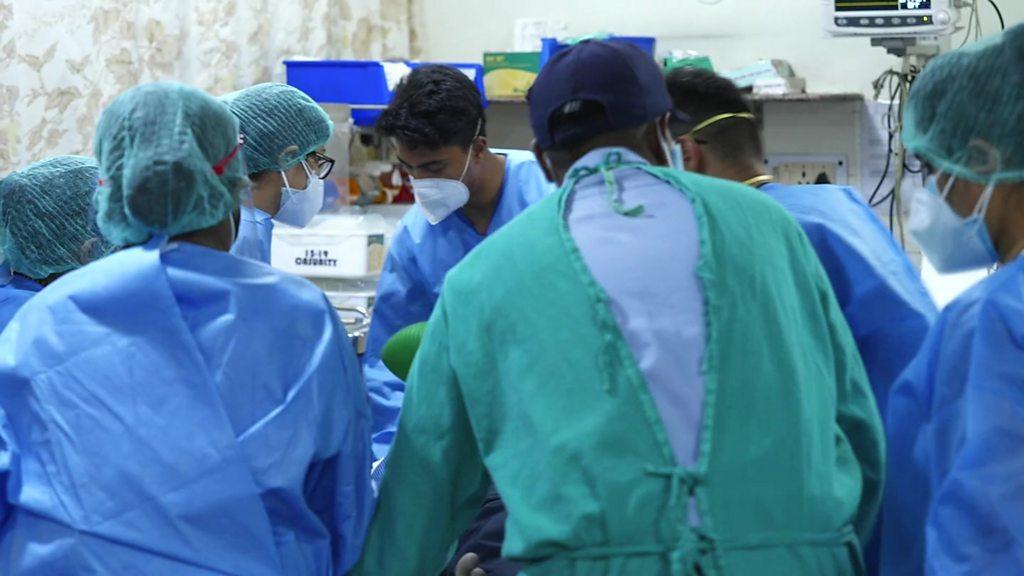India coronavirus: New record deaths as virus engulfs India
- Published
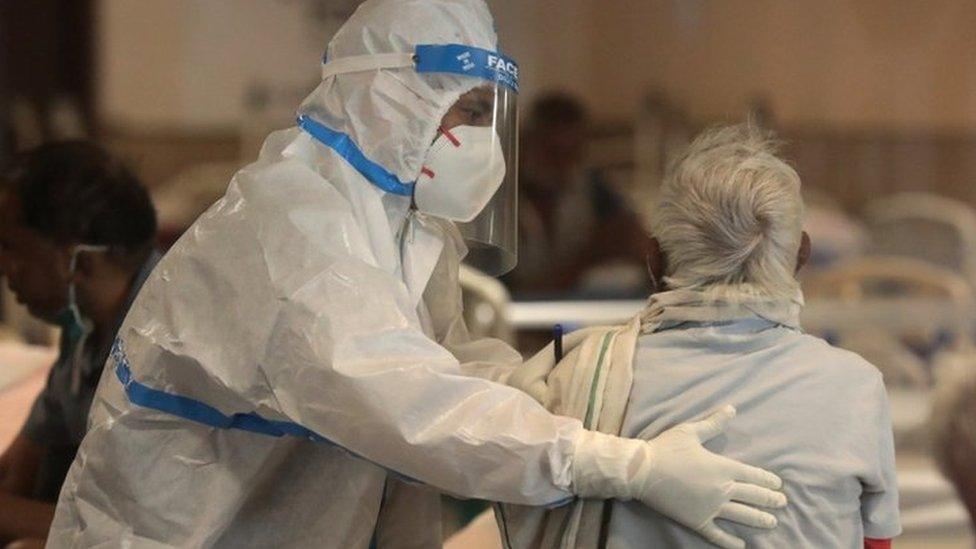
Hospitals are battling to treat patients amid shortages of beds and medical oxygen
India has recorded its highest daily coronavirus death toll since the pandemic began - a day after it became the first country to register more than 400,000 new cases in a 24-hour period.
Its health ministry said 3,689 people had died within the past 24 hours.
Prime Minister Narendra Modi met the health minister on Sunday morning to review the crisis.
Hospitals are battling to treat patients amid a chronic shortage of beds and medical oxygen.
Amid the surge, results came in from elections in several Indian states. They have been closely watched to see if voters would punish Mr Modi's handling of the crisis.
His BJP party suffered a setback in West Bengal, a state the party had hoped to capture. The state was instead comfortably held by the incumbent.
What are India's Covid figures?
India has recorded more than 19 million cases of coronavirus - second only to the US. It has also confirmed more than 215,000 deaths, though the real toll is thought to be far higher.
Experts have cited low testing rates and the number of people dying at home, especially in rural areas, as contributing factors to under-reported figures.
The country's previous highest daily death toll, also reported this week, was 3,645.
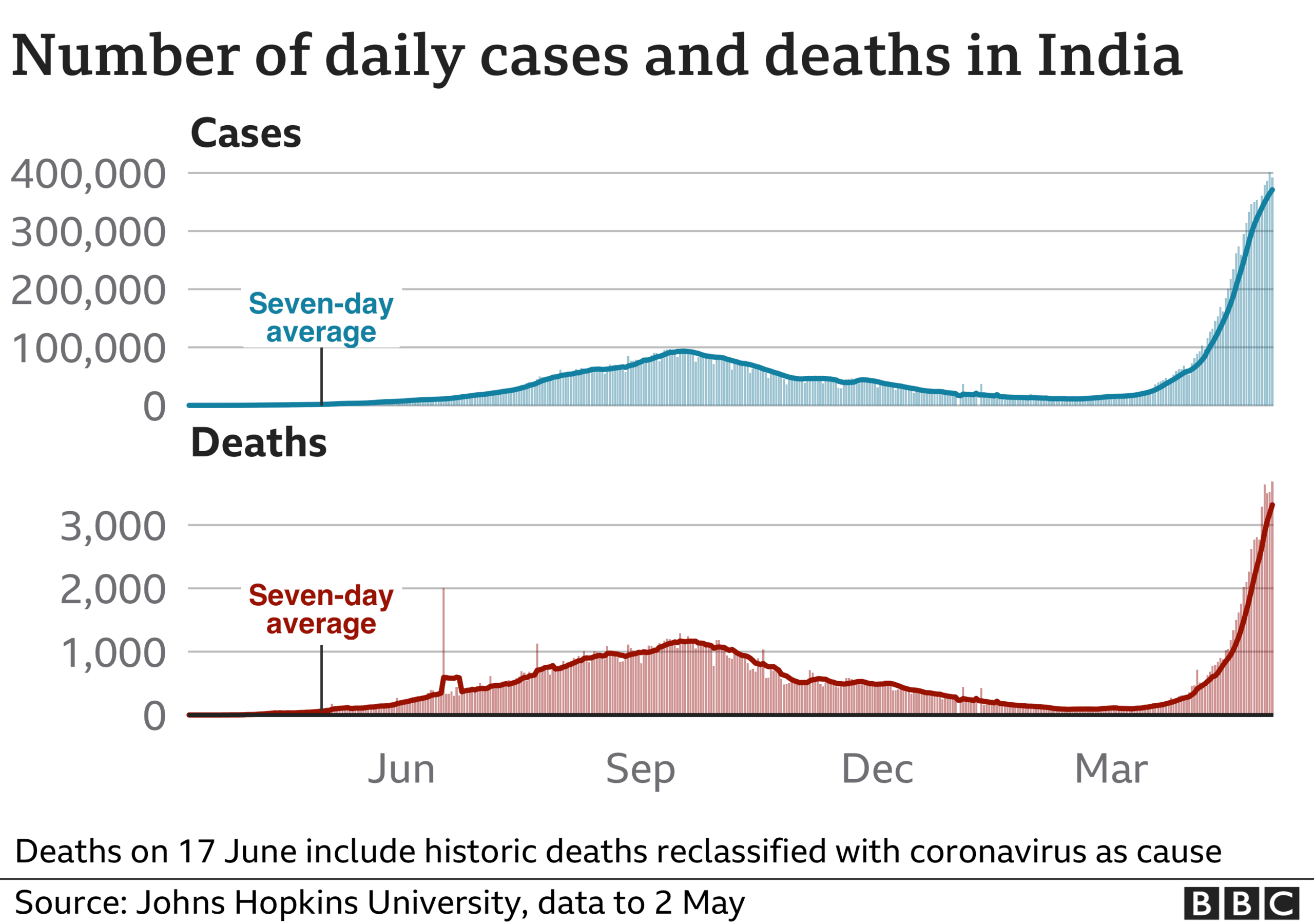

Brazil and the US have both registered daily tolls of more than 4,000 during the course of the pandemic.
In India, distressing images of families begging for hospital beds and life-saving supplies have been emerging for more than 10 days, while morgues and crematoriums remain overwhelmed.
Twelve people died on Saturday at Delhi's Batra Hospital after it ran out of oxygen - for the second time in a week.
The Times of India newspaper reported 16 deaths in the southern state of Andhra Pradesh due to oxygen shortages in two hospitals, and six in the Delhi suburb of Gurgaon.
Delhi High Court has now declared it will start punishing officials if life-saving supplies don't make it to hospitals.
The BBC's Yogita Limaye reports from a hospital in Delhi, which is running low on beds and oxygen
"Water has gone above the head. Enough is enough," said Justices Vipin Sanghi and Rekha Patil.
How is India doing on vaccination?
All adults in India are now eligible for a coronavirus vaccine. But the planned launch of a nationwide drive on Saturday faltered as several states said they did not have enough doses to start vaccinating those aged 18-44.
Despite being the world's biggest producer of vaccines, the country is suffering an internal shortage and has placed a temporary hold on all exports of AstraZeneca to meet domestic demand.
The Health Ministry said on Sunday that 84,599 people in the age bracket had been given a first dose of the coronavirus vaccine.
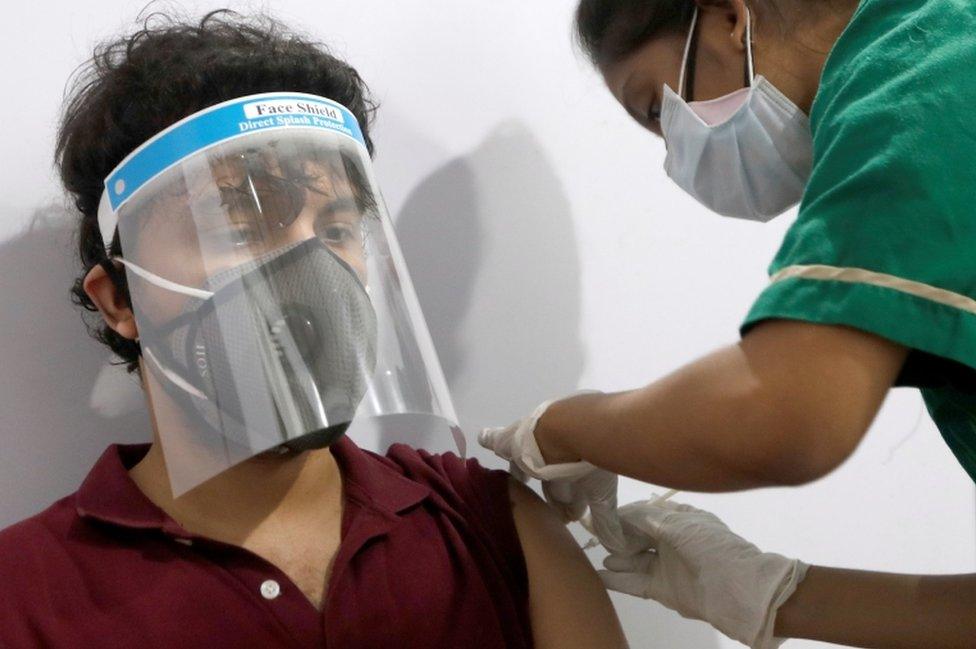
Some were lucky enough to be vaccinated in Mumbai on 1 May, despite a chronic shortage of jabs
India has been using two vaccines - the Oxford-AstraZeneca jab (known locally as Covishield) and another made by Indian firm Bharat Biotech (Covaxin). The Russian-made Sputnik V vaccine has also been approved for use, and the first 150,000 doses arrived on Saturday.
What are other countries doing to help?
Countries worldwide have sent a flood of emergency medical supplies. As of Thursday, 40 nations had sent shipments.
The first of several planes from the US carrying oxygen cylinders, masks and rapid diagnostic tests arrived in Delhi on Friday.
Allow X content?
This article contains content provided by X. We ask for your permission before anything is loaded, as they may be using cookies and other technologies. You may want to read X’s cookie policy, external and privacy policy, external before accepting. To view this content choose ‘accept and continue’.

"The bond between the oldest democracy & the largest one keeps getting fortified," India's health ministry tweeted.
The US had previously been criticised for imposing a ban on sending raw materials for vaccines abroad, which limited India's ability to make more of the AstraZeneca jab. The measure was lifted last week.
A German military aircraft with 120 ventilators reached India on Saturday, while the UK has also sent hundreds of pieces of medical equipment.
UK Foreign Secretary Dominic Raab told the BBC's Andrew Marr Show on Sunday that he would "always look very carefully at any request" to help as India deals with its record surge of Covid cases.
But asked if the UK should pause the vaccination of younger, less vulnerable people to send doses abroad, Mr Raab said he had not received any request from India "on that specific issue".
Why isn't India in full lockdown?
The central government is reluctant to impose a national lockdown, which the prime minister has called a "last resort". Senior leaders fear the economic impact, after last year's lockdown saw India's output fall by a record 24% in April-June compared to a year earlier.
The human cost could also be severe. Last year's 68-day national lockdown saw millions of India's migrant workers make arduous journeys back to their home villages after they found themselves unemployed and running out of money.
The poor, especially undernourished children and pregnant women who rely on government programmes, found it difficult to access benefits. Immunisation programs were halted, and those suffering from serious illnesses struggled to access crucial health services.
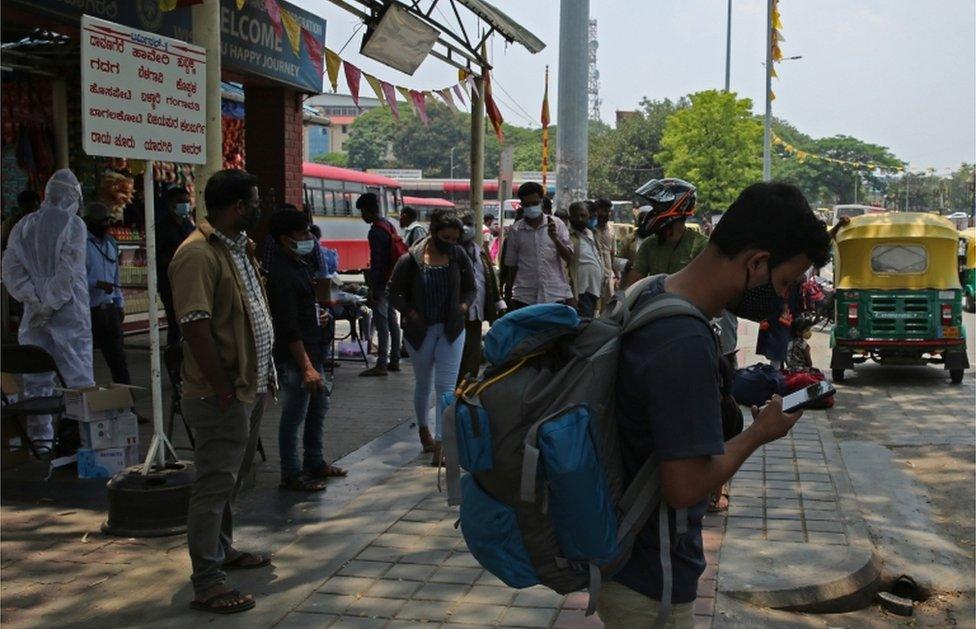
Many of India's migrant workers have faced considerable hardship to get back to their home villages
But several states and union territories do have restrictions in place.
Odisha was the latest to announce a two-week lockdown, joining hard-hit Delhi, Maharashtra, Karnataka and West Bengal.
Other states, including populous Uttar Pradesh, have either night curfews or weekend lockdowns.
The Indian Express newspaper reports that India's Covid-19 taskforce, which advises the government, is pushing hard for a nationwide lockdown to help subdue the devastating second wave.
Dr Anthony Fauci, the top US infectious disease expert, said on Saturday that an "immediate" shutdown for a "few weeks" could break the chain of transmission in India.
Related topics
- Published2 May 2021
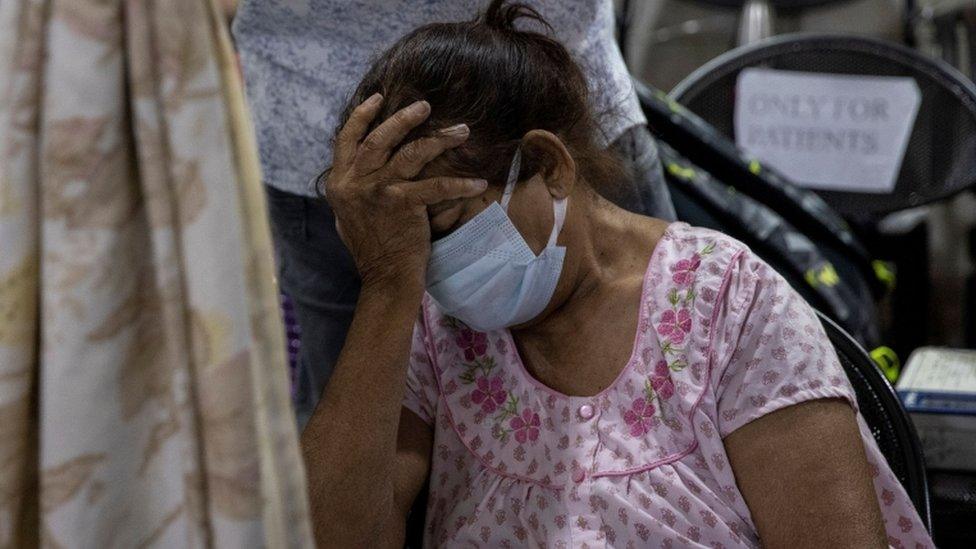
- Published1 May 2021
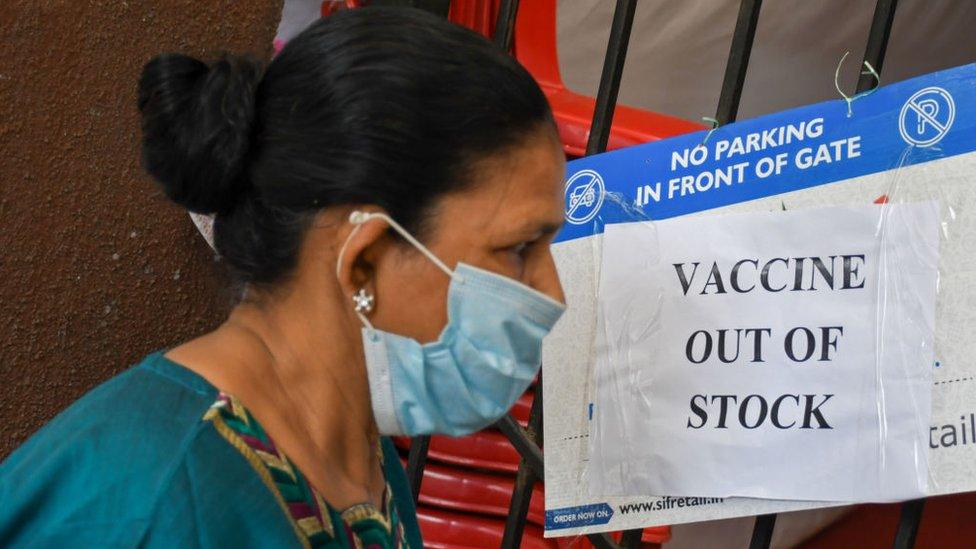
- Published29 April 2021
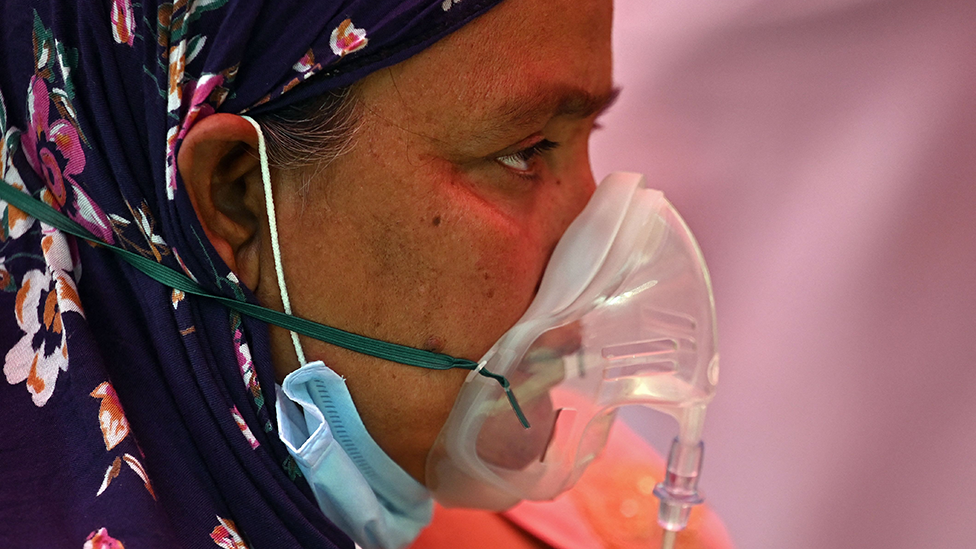
- Published29 April 2021
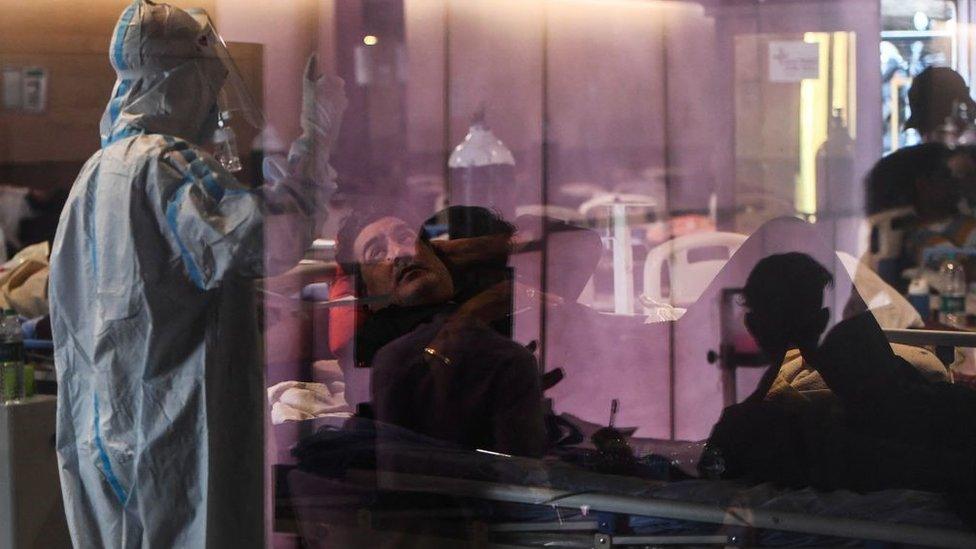
- Published23 April 2021
